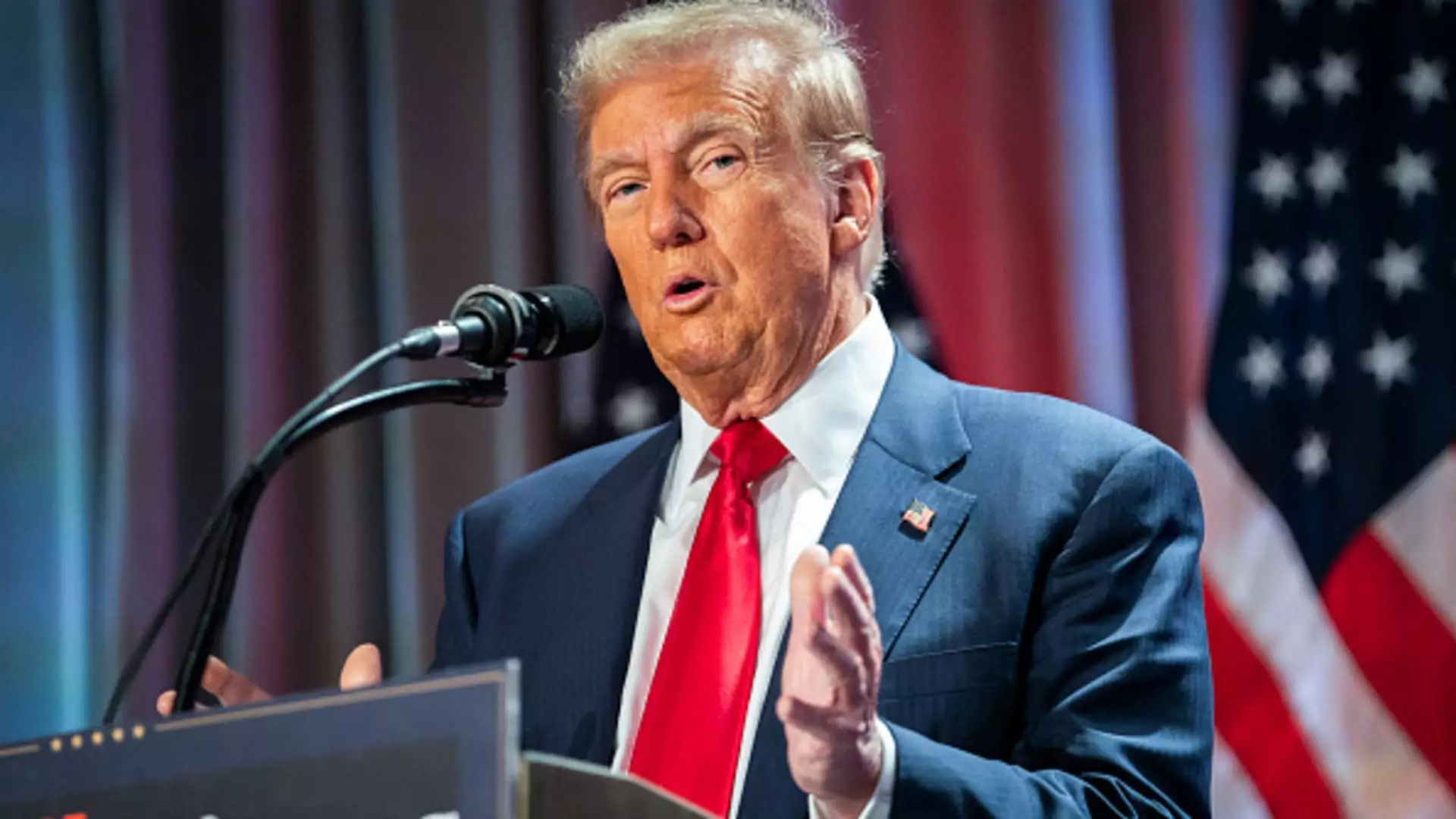As financial markets navigate the potential repercussions of a new administration’s tariff policy, money manager John Davi has struck a cautious note regarding investment strategies. With President-elect Donald Trump’s proposed tariff agenda in play, Davi, the CEO of Astoria Portfolio Advisors, is preparing for potential economic turbulence. His insight hinges on the belief that these tariffs could lead to inflationary pressures, making it crucial for investors to select their assets with considerable foresight. As inflation can erode purchasing power and stifle economic growth, it becomes increasingly important to identify resilient sectors within the market landscape.
One of Davi’s primary recommendations is a shift towards small-cap industrial firms over their large-cap counterparts. He argues that smaller companies are likely to benefit more from the anticipated policy shifts in a pro-growth environment. This perspective is substantiated by the recent performance of the Russell 2000 Index, which tracks small-cap stocks and has seen a noteworthy increase since the election. As small businesses typically have more domestic exposure and flexibility, they may be better positioned to adapt to any sudden economic changes incited by new policies.
Domestic Focus in Investment Strategy
Despite the looming uncertainties surrounding tariffs, Davi expresses confidence in focusing on U.S.-based investments. He believes that this strategy will be advantageous particularly in the lead-up to the 2022 midterm elections, where the political landscape may shift yet again. The emphasis on domestic investments aligns with a broader trend observed in the markets, where investors are favoring stocks that promise growth amidst fiscal changes due to anticipated policy reforms. Davi’s firm manages $1.9 billion in assets, underlining a significant level of confidence in the U.S. economy’s ability to withstand external pressures.
While Davi is optimistic about equities, he adopts a much more cautious stance towards fixed-income investments. His skepticism is rooted in concerns about the burgeoning budget deficit, which poses a risk to bond prices as yields correlate inversely with bond values. With a notable increase in the benchmark 10-year Treasury yield since the election—up approximately 3%—investors are advised to approach bond ownership with caution. This tension between rising yields and an expanding deficit sheds light on the precarious nature of fixed-income markets and the potential for losses.
John Davi exemplifies a calculated investment approach amid the complexities posed by a changing political landscape. By advocating a targeted investment in small-cap industrials and a domestic focus, coupled with caution towards bonds, he encapsulates a strategic framework that may help investors navigate potential economic challenges. As the political climate evolves, the shifts in investment strategy hold vital implications for portfolio management and long-term financial success, reinforcing the importance of adaptability in the face of uncertainty.

